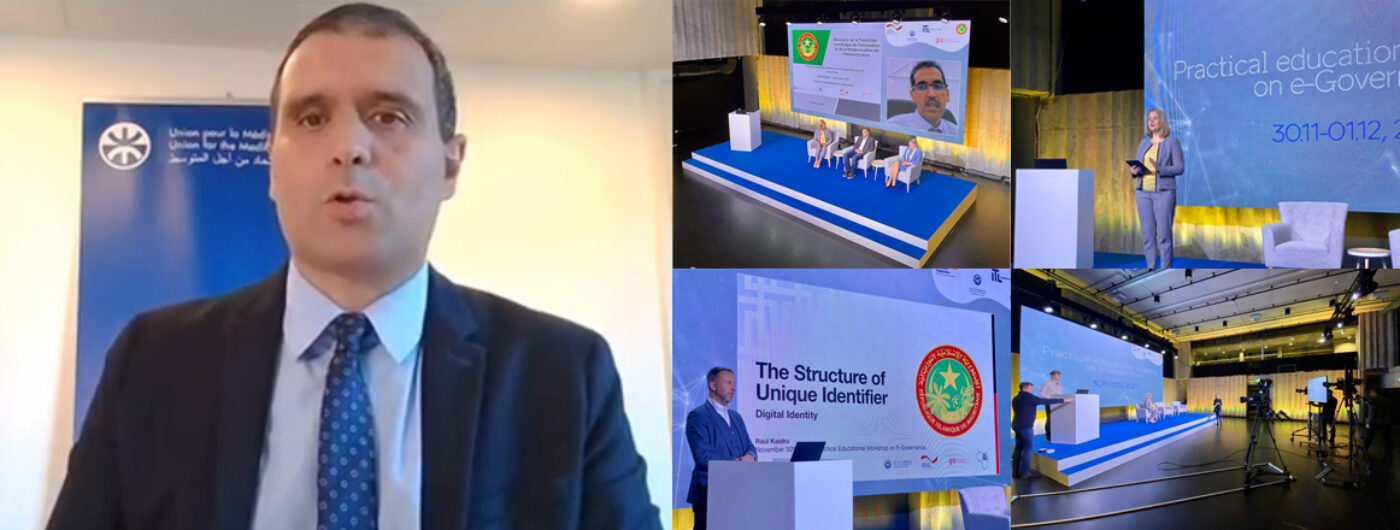
UfM Practical educational Workshop on “e-governance” in Mauritania
30 November and 1st December 2021. In collaboration with the Deutsche Gesellschaft für Internationale Zusammenarbeit (GIZ), a UfM Practical Educational Workshop on “e-governance” was implemented by the Estonian ICT Cluster for the benefit of Mauritania in a hybrid format on 30th November and 1st December 2021.
The third in a series of UfM e-governance Workshops organized throughout 2021 as a follow-up to the outcomes of the UfM Conference on “Digital Transformation and Digital Skills for the Future” held in Tallinn (Estonian Capital), on 30 September 2019, this tangible initiative aimed to provide an opportunity for best practices sharing on digitalization as well as to enhance the cooperation between the UfM and its Member State, Mauritania.
Opening the Workshop, Abdelkader El Khissassi, UfM Deputy Secretary General, Johannes Laepple, Head of GIZ project “support to the UfM on Employment and Trade”, as well as Margus Rava, Ambassador-at-Large for economic cooperation with Africa at the Ministry of Foreign Affairs of Estonia, have all agreed on the importance of digital transition for an inclusive, sustainable and human centered economic recovery, stressing the need to scale up international cooperation to achieve this goal. Presenting the state of digitalization in Mauritania, Mohamed Lemine SALIHI, Chargé de Mission, at the Ministry of Digital Transformation, Innovation and Modernization of Administration of Mauritania, displayed the Mauritanian strategy to digitalize gradually public services according to an ambitious time-framed roadmap.
During the two day training sessions, a constellation of prominent speakers mobilized by the Estonian ICT Cluster proceeded with an enriching presentation and exchange of ideas in front of over 50 attentive attendees representing a wide range of backgrounds (Public Institutions, private sector, civil society and academia), discussing in depth relevant themes such as: the possibilities in a digital society; first steps towards information society; digital society foundations; legal framework of e-Governance and key elements of a secure digital society; digital Skills; public service transformation; ensuring the safest and most attractive business environment… etc.
Finally, it should be noted the UfM will remain committed to make the digital transformation in the region a reality, acting upon the Joint Statement of the UfM Co-presidency adopted on 27 November 2020 which identified digital transition as one of the five priority areas of action for the coming years, working in close collaboration with its relevant partners, including GIZ and Mobile World Capital.

